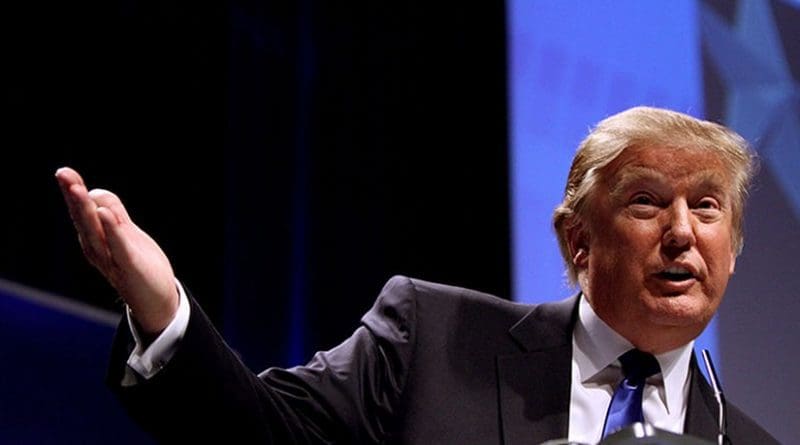Russian Joke About Trump’s Language Helps Explain Him – OpEd
By Paul Goble
Russians are now telling a joke about Donald Trump and his language, the careful consideration of which, Moscow commentator Gleb Kuznetsov says, can go a long way to explain how Trump approaches the world and why some who assume that he is on their side may be disappointed.
According to the anecdote, Trump is asked whether he would like something to drink. Trump replies: “I know precisely what I want, for only such a man as I, who all his life has concluded the best deals in history can want in such an outstanding way. And I can say that you will be happy when you see what I want” (kasparov.ru/material.php?id=58806C2A0A912).
This case of “Trump lingo,” Kuznetsov says, displays two features of the new president’s thought: a love for the superlative and an effort to avoid responding to a specific question.” And it suggests that “purely semantically,” Trump views politics as a set of “bilateral relationships” between those who can make deals and wants to avoid more complicated multi-lateral ones.
It is from this, the Moscow commentator continues, that arises Trump’s distaste for NATO and the EU where decisions are made collectively and his preference for people like the prime minister of Great Britain after Brexit and the Russian leader Vladimir Putin who are able to make deals on their own.
(In domestic affairs, Kuznetsov observes, this takes the form of a preference for one of two kinds of outcomes: putting someone in charge and allowing him or her to make the decision, and forcing whoever it is to make a deal he likes.)
And this attitude also explains why the new US president doesn’t want to be specific. As an experienced negotiator, he knows that if you tell your opposite number too much about your position, the latter will take advantage of that against you. Hence, concealment and obscurantism in answering is a good thing.
It is certainly true, Kuznetsov says, that “Trump lingo is ideal for Twitter” where everything has to be presented in 140 letters and spaces or less. But it is less useful for when dialogue is necessary and necessarily prolonged. And given the complex nature of so many things, Trump will have to find his way from Tweet to conversation.
And what remains to be seen with his elevation to the presidency is whether “the language of world politics will be changed,” something he and Putin may want, although the latter’s preference for deals is more Machiavellian, “whether the language of Trump will be replaced, or whether we will see President Pence” in his place.
For the time being, one can only wait – and possibly learn from anecdotes.

